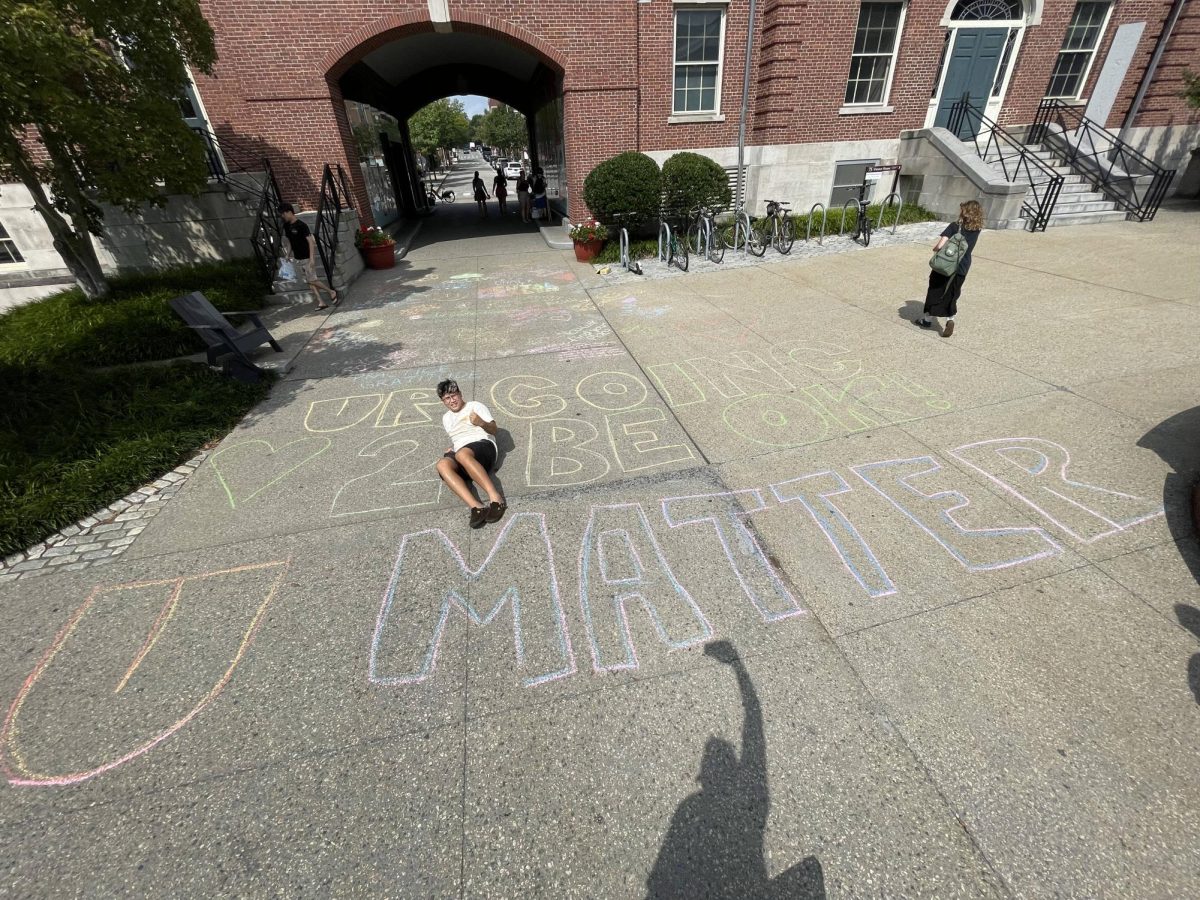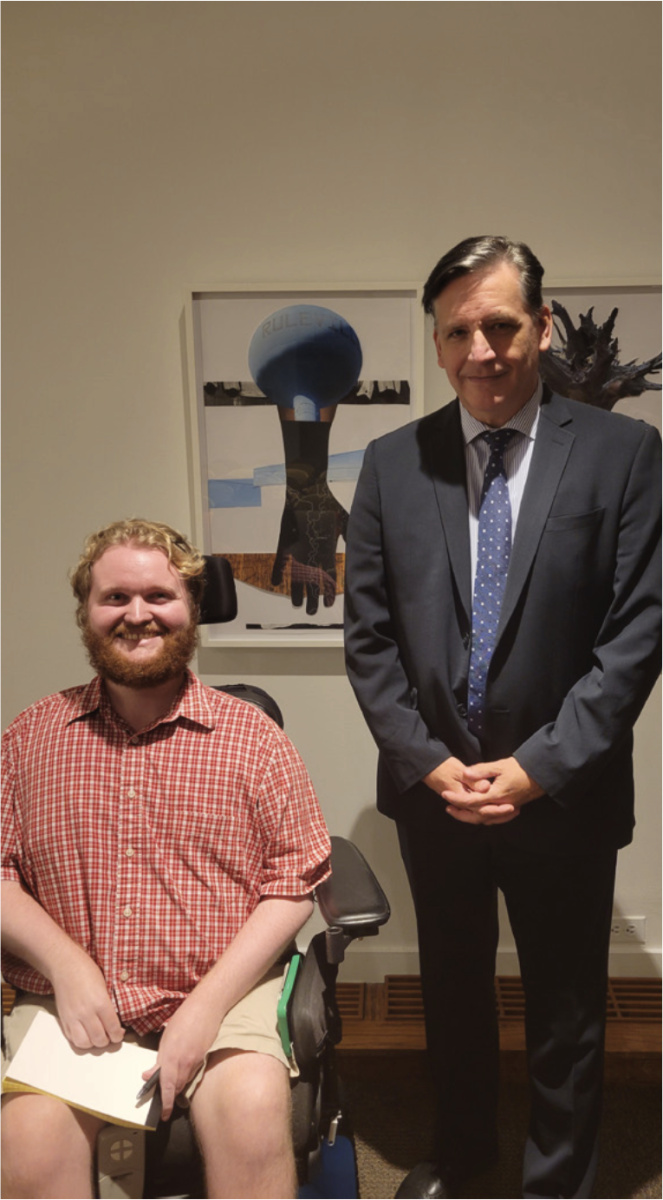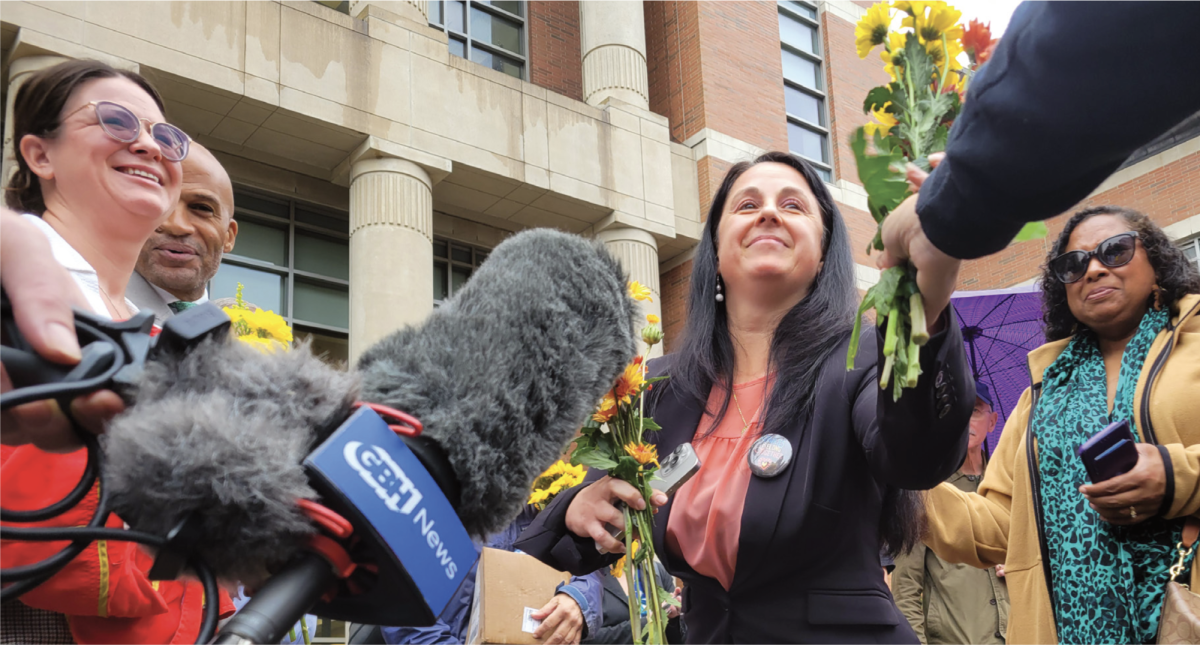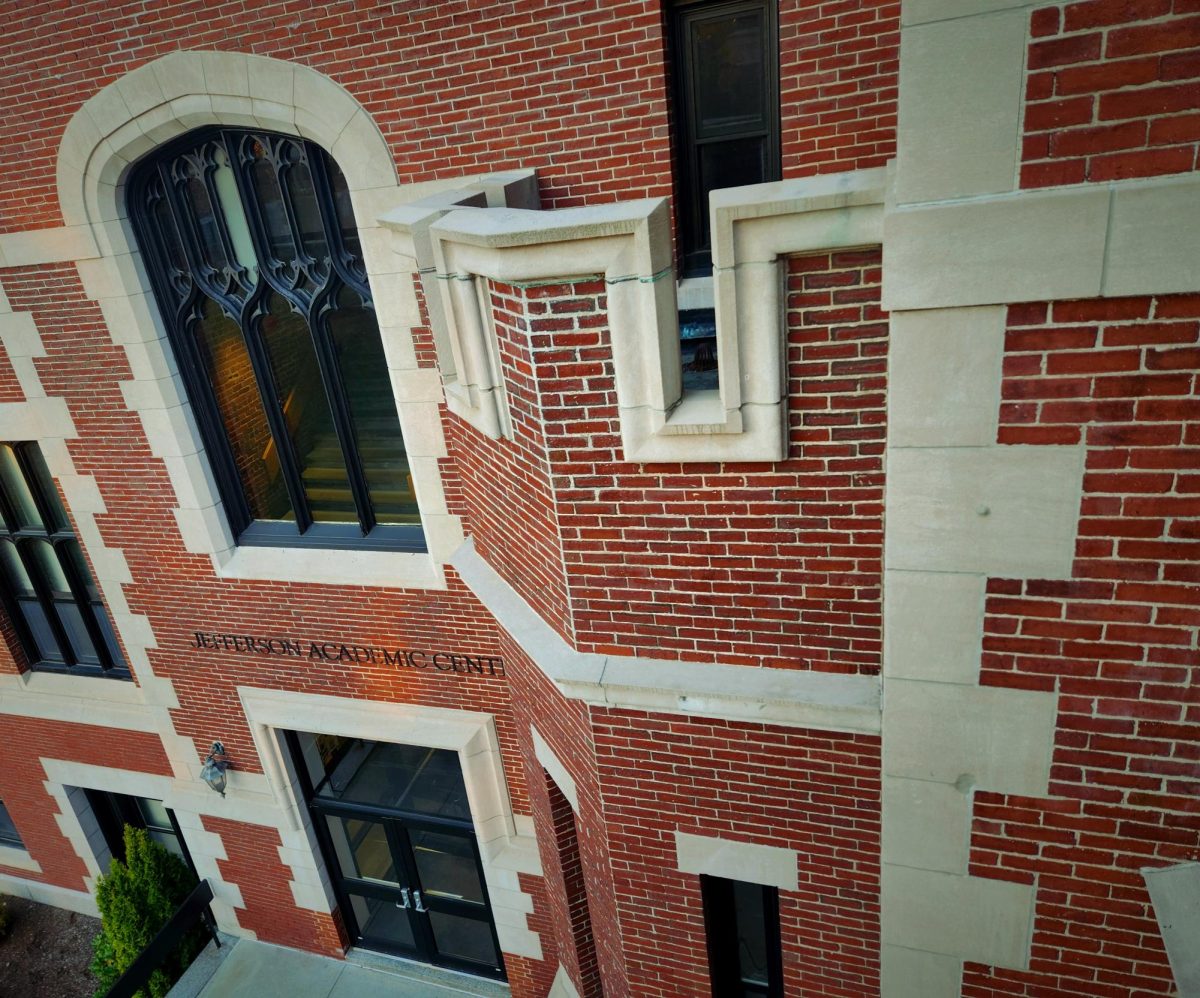“Depression is an accumulation of really shitty things, but, you know, happiness is an accumulation of really really awesome things,” said Michael Ouyang, a sophomore at Brown University and the founder of an organization that aims to destigmatize mental illness.
Ouyang, like many other college students, struggles with anxiety and depression. After finding relief in speaking out publicly about his experiences, he decided to allot an online safe space for others to do the same. He called this space No Empty Seats.
From Instagram Page to Nonprofit: The Story of No Empty Seats
Ouyang describes No Empty Seats as a community space and blog page. He wanted to give people a space to show people that they are never alone in their struggles.
“Literally everyone is going through something, and it’s OK to not be OK, and part of the battle is getting all your thoughts out there and asking for help,” Ouyang stated.
No Empty Seats started as an Instagram page but became an official nonprofit organization in March 2023.
When asked about the actions No Empty Seats takes to spread awareness, Ouyang explained: “Everything I do with my mission and my purpose, is, I do stuff I’d wanna see when I was going through something.”
On the No Empty Seats Instagram page, Ouyang collaborates with fellow students on posts discussing their mental health struggles. He also presents challenges on Brown University’s campus to combat his own anxiety and brighten people’s days: “It’s really dumb stuff, you know, to hopefully make people laugh and inspire them to be like ‘Hey, if Michael can do the naked donut run then I can raise my hand in class,’” he said.
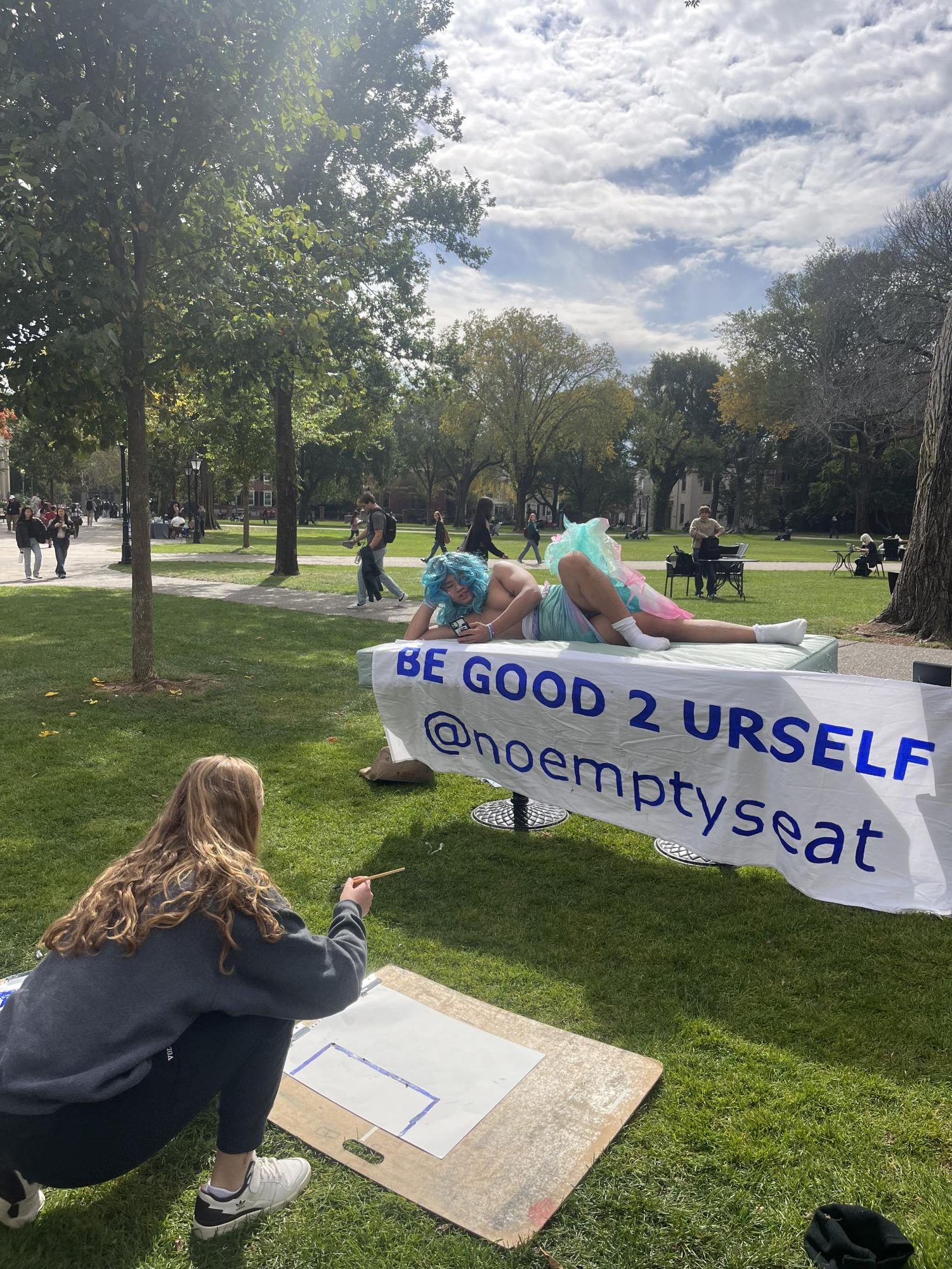
These challenge videos have garnered the No Empty Seats page a lot of attention; some of these videos have gotten over 10,000 views. Ouyang said fellow students approach him to discuss how his videos have inspired them to dispel their anxiety in their daily lives, too.
Along with social media campaigning, No Empty Seats sells bracelets with positive mental health messages on them such as “Stronger Together” and “Never Alone.”
Ouyang stated that he has sold over 3,000 to people all across the country.
Another method of fundraising comes from college athletes dedicating their season to No Empty Seats and pledging donations for each game their team wins.
Thirty percent of the money raised by No Empty Seats is donated to the American Foundation for Suicide Prevention, while the rest is reinvested into the nonprofit.
Ouyang said he does not pay himself a salary and has no interest in keeping any of the earnings for himself.
No Empty Seats caters to teens and young adults due to its reliance on social media, which creates a peer-to-peer support system between the nonprofit and its supporters.
Mental Health In A College Setting
Mental health issues impact everyone on a college campus. According to data from the University of Michigan’s Counseling and Psychological Services, suicide is the second leading cause of death for college students, and approximately 1,100 suicides occur on college campuses per year.
Ouyang spoke on the need for mental health resources on college campuses, saying that free therapy services and university mental health campaigns can make a difference, but he points out: “The biggest thing that gets people to start talking has nothing to do with college resources – what gets people talking is the cultural stuff, other people talking. It’s up to us to make it easier for people to talk.”
Faith Field, a sophomore at Clark University, said, “This is our home. You need to fulfill all of our needs,” in regards to the role of higher education institutions in mental health support. Field, similarly to Ouyang, feels that community connection is an important outlet for those who are struggling.
Ryan McDowell, also a sophomore at Clark University, added that while the university workload can be stressful, most issues arise within interpersonal relationships. Leaving his friends and family in his home state of Missouri to study in Massachusetts has caused a desire to connect with them online, as many other students far from home do.
In this situation, social media can be great for mental health – however, McDowell went on to explain that the act of comparing yourself to others is damaging and can heighten insecurities.
Field agreed with this point, but stated the opinion that social media is what you make of it – its design does not show concern for the mental health of its users, but if you use it mindfully, it can create relationships and a sense of community. Field then went on to admit, “I am addicted to [social media], but I don’t think it’s truly harming my life.”
Local Higher Education’s Actions
Worcester Polytechnic Institute was devastated by seven student deaths, many ruled to be suicides, from July 2021 to January 2022. The community gathered to grieve and address the mental health crisis at their school.
After much brainstorming and planning, WPI opened its Center for Well-Being in January 2023. According to WPI’s website, the offerings of the Center include wellness days, individual and group therapy, peer advocacy and support, mental health awareness education and more.
At Clark University, mental health is also a community issue. In a ClarkNow article written in October 2023, E. Tejada III, associate director of gender and sexuality for Clark’s Office of Identity, Student Engagement, and Access disclosed, “As we’ve surveyed our first-year students in the last few years, we’ve seen a rise in them identifying as queer or gender diverse, from 40% to 50%.”
LGBTQ+ youth are more than four times more likely to attempt suicide than other youth, according to The Trevor Project. Due to the high population of LGBTQ+ youth at Clark, investment in mental health resources is especially important.
However, many Clark students have doubts about the utility of the University’s Center for Counseling and Personal Growth (CPG).
According to its website, CPG offers individual counseling, after-hours crisis support over the phone, therapy groups and psychiatric medication management.
The main type of therapy that CPG conducts is talk therapy, and they do not employ specialists, such as sexual assault or intense phobia counselors.
McDowell and Field spoke on the unfavorable reputation of mental health resources at Clark – with Field flat out stating, “Administration does not do enough.”
McDowell, in the process of attempting to file a restraining order, had a plethora of issues with administration. Field explained that she had been ignored by the Office of Student Accessibility Services when requesting accommodations.
The Scarlet received a Letter to The Editor from Mary Kelley in April 2021 that described a similarly poor experience with CPG and Clark’s mental health resources.
Due to the perception of Clark’s CPG and other resources, students find the most comfort in their peers. Field specifically expressed satisfaction in the sense of community that Clark creates through engagement and events.
Check On Your Friends
“Suicide can’t be an option. You have to be here to stay,” Ouyang said. In creating a cultural movement through No Empty Seats, Ouyang aims to spread this way of thinking to as many people as he can. He wants people to create conversations with their peers about their mental health.
McDowell and Field also said that peer-to-peer connection is vital, stating that doing small gestures for friends or just being a stable presence in their lives can truly make a difference.

